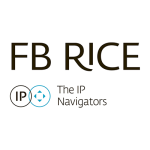New Zealand’s Patents Act 2013 (the ‘new Act’) came into force on September 13 2014 and applies to the majority of patent applications filed in New Zealand. The changes in the new Act were intended to align New Zealand’s patent laws more closely with those of significant trading partners.
The Intellectual Property Office of New Zealand (IPONZ) has often been required to interpret the new Act and its associated regulations to provide practice, procedural, and legal guidance in the absence of precedents. IPONZ achieves this through examination and opposition hearing decisions, its Patent Examination Manual, and consultation with stakeholders through various technical focus groups (TFGs).
Hearing decisions
In Oracle International Corporation [2021] NZIPOPAT 5, in interpreting the double patenting provisions of the new Act, the Assistant Commissioner clarified that a divisional application can include claims that overlap with the claims of an earlier accepted parent, provided that each claims distinctly different subject matter. Before this decision, IPONZ had applied a strict stance on what constitutes double patenting and raised objections against any overlap.
In Ganymed Pharmaceuticals et al. [2021] NZIPOPAT 6, the Assistant Commissioner clarified that a double patenting objection could be overcome by surrendering or amending the earlier application or patent. Before this decision, IPONZ had adopted a strict interpretation of the regulations where the subsequent fate of the first accepted application was not considered relevant and the accepted claims permanently set in place the claims for assessment of double patenting.
In Intervet International v Merial [2017] NZIPOPAT 12, in granting an extension of time to file a counterstatement in revocation proceedings, the Assistant Commissioner clarified the meaning of the phrase “exceptional circumstances” in the context of the new Act and regulations as “unusual, out of the common run”, which was a much more lenient interpretation and arguably practical outcome for New Zealand patent applicants. In a rare occurrence, this decision was appealed to New Zealand’s High Court, which agreed with IPONZ, stating at [37]: “It is difficult to imagine in the area of procedure relating to patent applications and patent proceedings that anyone is better placed to assess what is “unusual” than the experienced Commissioner or Assistant Commissioner.”
In CNH Industrial Belgium [2018] NZIPOPAT 7, the Assistant Commissioner clarified that patent applicants wishing to amend the specification during examination no longer need to provide a specific statement of support setting out the parts of the original specification that support each and every proposed amendment. Rather, such a statement is only required if the applicant relies on the amendment finding support in the original specification. This interpretation of the regulations relaxed the support required for amending patent specifications.
Patent Examination Manual
The Patent Examination Manual sets out IPONZ’s practices under the new Act and associated regulations, and includes commentary on relevant case law from the hearing office and courts. It is updated regularly and provides valuable and detailed guidance to applicants on how to navigate various sections of the new Act and its associated regulations. Many of these updates are the result of extensive consultation with stakeholders through various TFGs.
Technical focus groups
IPONZ has implemented TFGs for client representatives to provide feedback on proposed practice and policy changes or any updates to the Patent Examination Manual following any new precedents developed by IPONZ, including the decisions highlighted above.
Instead of updating practice and policy in a vacuum, IPONZ actively engages with stakeholders through the TFGs to ensure that any proposed changes in examination practice are consistent with IPONZ’s hearing decisions. Additionally, the notes from each TFG meeting are published by IPONZ and provide guidance to patent applicants as to potential changes in examination practice.
Critical role in creating precedents
For various reasons, cases heard before IPONZ are rarely appealed to New Zealand’s High Court. Therefore its decisions clarifying or interpreting the new Act and its associated regulations will often set critical precedent shaping New Zealand’s patent practice. This highlights the importance IPONZ plays in formulating patent practice in New Zealand.
With the new Act still in its infancy at less than ten years old, we can expect that IPONZ will continue to be required to interpret New Zealand’s patent law to shape practice and policy, especially in the absence of New Zealand court decisions.












